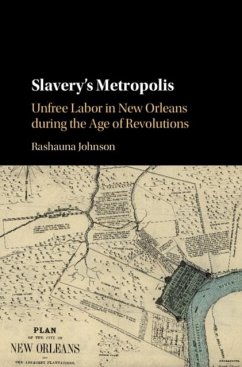New Orleans is an iconic city, which was once located at the crossroads of early America and the Atlantic World. New Orleans became a major American metropolis as its slave population exploded; in the early nineteenth century, slaves made up one third of the urban population. In contrast to our typical understanding of rural, localized, isolated bondage in the emergent Deep South, daily experiences of slavery in New Orleans were global, interconnected, and transient. Slavery's Metropolis uses slave circulations through New Orleans between 1791 and 1825 to map the social and cultural history of enslaved men and women and the rapidly shifting city, nation, and world in which they lived. Investigating emigration from the Caribbean to Louisiana during the Haitian Revolution, commodity flows across urban-rural divides, multiracial amusement places, the local jail, and freedom-seeking migrations to Trinidad following the War of 1812, it remaps the history of slavery in modern urban society.
Dieser Download kann aus rechtlichen Gründen nur mit Rechnungsadresse in A, B, BG, CY, CZ, D, DK, EW, E, FIN, F, GR, HR, H, IRL, I, LT, L, LR, M, NL, PL, P, R, S, SLO, SK ausgeliefert werden.









